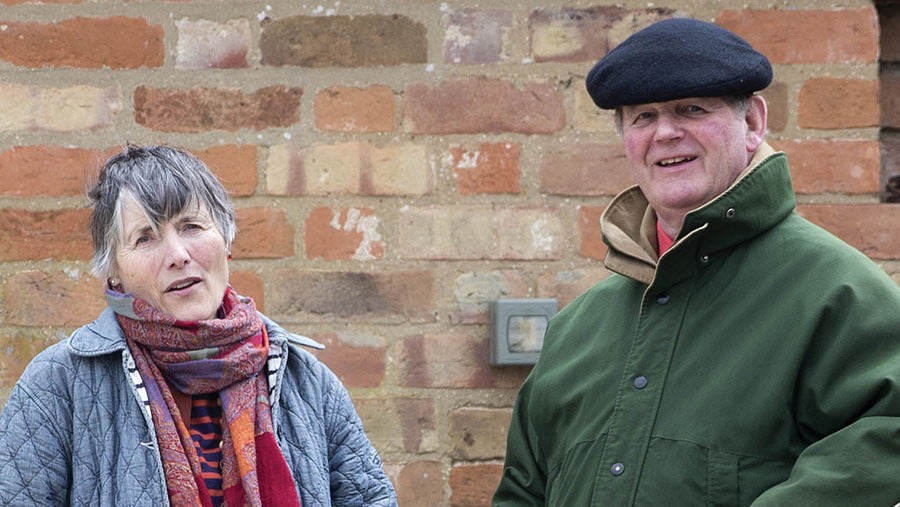Coronavirus: Rural charities face funding crisis
 A Virtual Tour of Pembrokeshire will replace the real thing this year
A Virtual Tour of Pembrokeshire will replace the real thing this year Rural charities are facing a sharp drop in income, as the coronavirus crisis scuppers fundraising initiatives, but they are reassuring farming families there will be no cuts in the support on offer.
The cancellation of agricultural shows and events as varied as tractor runs, summer balls and YFC initiatives has led to a fall in donations to the Royal Agricultural Benevolent Institution (Rabi).
See also: When, how and why farming charities Rabi and FCN can help you
“We will have a significant drop in our income this year because the structure of how we raise our voluntary income has been wiped from under us,” said Rabi chief executive Alicia Chivers.
“The expectation is that larger events aren’t going to happen anytime soon in 2020 – and that’s where we’ve got a gap.”
She pointed out, however, that would-be donors were thinking creatively, organising such events as a Virtual Tour of Pembrokeshire cycle ride and a virtual Kilimanjaro trek.
“People are doing some amazing things, but we have to accept – and it will be across the board for charities – that this situation will have an impact on our income, certainly in 2020,” she said.
Exploring options
Rabi is busy exploring additional potential revenue streams including new corporate donors, trusts and other charitable organisations, and can draw on its reserves, and so remains “absolutely committed” to its pre-coronavirus support programmes.
“We had already committed to our highest level of support ever. Purely in direct monetary terms, we had increased our direct grant budget to £3m this year,” said Mrs Chivers.
Such help is likely to be needed, given the range of pressures on the farming community, including the extreme weather, animal health issues and Brexit.
“Covid is awful for the whole country, it has turned everybody’s lives upside down and I don’t think life will ever be the same,” Mrs Chivers said. “But we are still here and the reason we exist at all is to help farmers through challenges.”
Glen-sized funding hole
Nina Clancy at the Royal Scottish Agricultural Benevolent Institution (Rsabi) has also raised concerns about the impact lockdown is having on fundraising opportunities in Scotland.
“Our Great Glen Challenge, our major fundraising event which is usually held at the end of August, is unlikely to proceed and that will leave us with a £50,000 hole,” she said.
It was difficult to predict how big the total fall in revenue would be as a result of fundraising cancellations, but she said money continued to come in from grants, legacies and a regular donations.
“Individuals and farming businesses are still being wonderfully generous and we’re hoping to build on that over the next few years,” Ms Clancy said.
FCN appeal
The Farming Community Network (FCN) is also working hard to appeal for external funding and promote its services among farming families.
FCN head of operations Philip Wilson is particularly aware of the effects the cancellation of the 2020 show season will have – on farmers, for whom it can be an important source of face-to-face contact, and on its own cash-raising abilities.
“This prevents important interaction between members of the community from taking place,” he said. “We have already seen a rise in calls, with Covid-19 featuring in a large proportion of enquiries made over the previous month.”
Farms for City Children feels the pinch
Another charity that has been affected is Farms for City Children (FFCC). Founded by the writer Sir Michael Morpurgo and his wife, Clare, it gives urban kids an opportunity to spend a week living and working on a farm.
With bases in Devon, Pembrokeshire and Gloucestershire, FFCC usually hosts 3,200 children and 400 teachers a year from all over the country, giving them a chance to have a “learning-through-doing experience” of agriculture and the countryside.

Clare and Michael Morpurgo at FFCC’s Gloucestershire farm © David Hartley/Shutterstock
“Covid has hit us extremely hard,” said Sir Michael, the author of War Horse. “It’s forced all our farms to close and while we’ve kept on a skeleton crew – enough to make sure the animals and crops are looked after – we have no idea how long it will be before the children can return. No visits means no money for FFCC.”
While the charity, founded 45 years ago, offers “magical” stays for its visitors, it also brings huge benefits for the agricultural community, as it spreads greater understanding of farming. “The rural community needs that sort of support from the urban one,” said Sir Michael.
“We and all the trustees are working extremely hard to raise the funds to keep us going until the children can return. We are determined to make that happen, but finding funding is always a challenge, even at the best of times. We’re not disheartened, but we are worried.”
